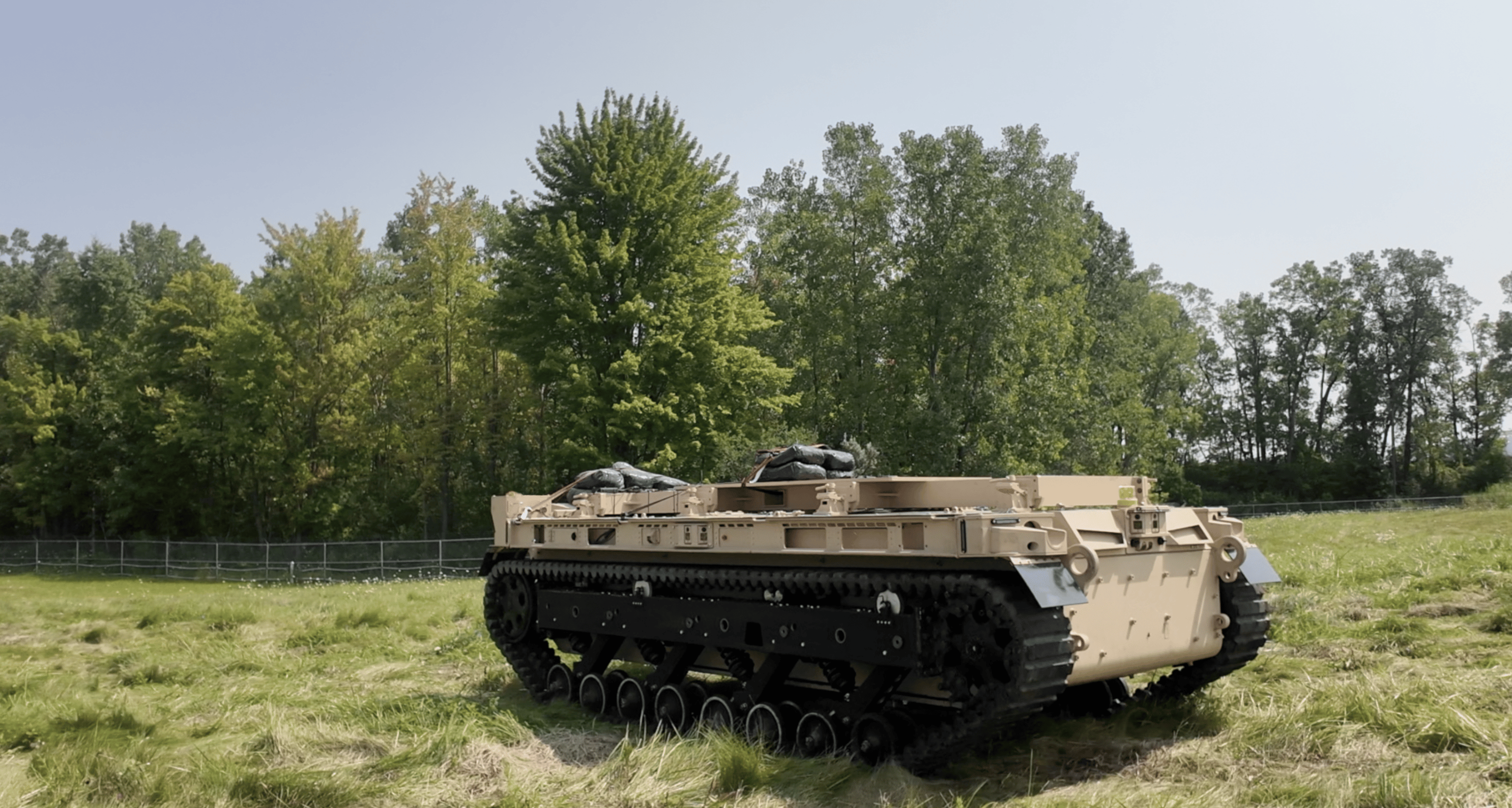SAE J2279 Transmission Shift Quality and Endurance Testing under Load
The SAE J2279 standard is a critical tool in the development of modern vehicle transmissions, particularly those used in military land systems. This testing protocol ensures that transmissions meet rigorous performance requirements for shift quality and endurance, which are paramount in ensuring reliability and operational readiness under harsh conditions.
SAE J2279 involves subjecting the transmission to a series of load cycles designed to simulate real-world driving scenarios. The test requires precise control over various parameters including speed, torque, and time, all while monitoring shift quality metrics such as clutch engagement and disengagement smoothness. This testing ensures that transmissions perform consistently across a wide range of conditions, from high-speed maneuvers to extended low-speed operations.
The protocol is particularly relevant for military applications where transmission reliability is non-negotiable. In combat environments, the ability to shift gears smoothly and efficiently can mean the difference between mission success and failure. The testing process includes both static and dynamic load phases, allowing engineers to evaluate not only the immediate performance of the transmission but also its long-term durability.
The SAE J2279 standard is supported by a comprehensive set of acceptance criteria that define what constitutes a successful test. These criteria include specific thresholds for shift quality metrics as well as endurance limits. Compliance with these standards is essential for ensuring that transmissions meet not only military specifications but also the broader requirements of modern vehicle design.
For quality managers and compliance officers, adherence to SAE J2279 is crucial in maintaining the integrity of the supply chain. Ensuring that all components meet stringent performance criteria is key to preventing costly failures in the field. For R&D engineers, this testing process provides invaluable insights into the limitations and capabilities of transmission designs, allowing for iterative improvements.
In terms of specimen preparation, the SAE J2279 protocol requires careful selection and conditioning of the transmission under test. This involves ensuring that all components are in optimal condition prior to the start of the test. The testing apparatus used is highly specialized and capable of withstanding the high loads and stresses applied during the test.
The reporting process for SAE J2279 testing is extensive, providing detailed data on performance metrics throughout each phase of the test. This includes shift quality scores, endurance limits achieved, and any anomalies observed during the test. These reports are essential for both internal review and external certification purposes.
Why It Matters
The SAE J2279 standard is crucial for several reasons. Firstly, it ensures that transmissions meet the stringent performance requirements necessary for military vehicles. In a combat environment, transmission failure can lead to mission failures and even casualties. Secondly, compliance with this standard helps maintain the integrity of the supply chain, ensuring that all components are up to specification.
For R&D engineers, adherence to SAE J2279 provides critical insights into the performance of transmissions under various conditions. This data is invaluable for iterative design improvements and can significantly impact product development timelines. Additionally, compliance with this standard can reduce warranty claims and improve customer satisfaction by ensuring that products perform consistently across all intended use cases.
The SAE J2279 protocol also helps in identifying potential issues early on in the development process. By subjecting transmissions to a range of load cycles, engineers can pinpoint areas for improvement before they become critical defects. This proactive approach to quality assurance is essential in the highly competitive military vehicle market where reliability and performance are paramount.
Finally, compliance with SAE J2279 can provide a significant competitive advantage by ensuring that products meet or exceed industry standards. This can lead to increased market share and improved brand reputation among both military and civilian customers.
Industry Applications
| Application | Description |
|---|---|
| Military Ground Vehicles | Incorporates the SAE J2279 standard to ensure transmissions are reliable and perform well under combat conditions. |
| Off-road Equipment | Ensures that transmissions used in off-road equipment can handle extreme terrain and environmental conditions. |
| Construction Machinery | Guarantees that transmissions are capable of withstanding the harsh operating environments typical of construction sites. |
| Agricultural Equipment | Ensures that transmissions can handle the demanding loads and conditions often found in agricultural operations. |
The SAE J2279 standard is widely used across various sectors where robust transmission performance is critical. Its application spans from military ground vehicles to off-road equipment, construction machinery, and agricultural equipment. In each of these applications, the protocol ensures that transmissions are capable of withstanding the specific challenges posed by their operating environments.
Competitive Advantage and Market Impact
- Ensures compliance with international standards, enhancing product credibility.
- Reduces warranty claims through early identification of potential issues.
- Improves customer satisfaction by ensuring consistent performance across all intended use cases.
- Promotes iterative design improvements based on real-world testing data.
- Increases market share by meeting or exceeding industry standards.
The SAE J2279 standard provides a competitive advantage in the marketplace by ensuring that products meet stringent performance requirements. This not only enhances product credibility but also reduces warranty claims and improves customer satisfaction. The protocol promotes iterative design improvements based on real-world testing data, which can significantly impact development timelines. Additionally, compliance with this standard increases market share by meeting or exceeding industry standards.





